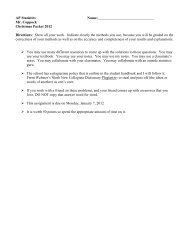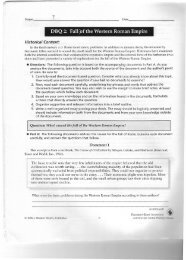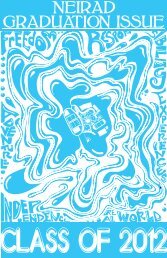Forensic Investigation Curriculum (pdf) - Darien Public Schools
Forensic Investigation Curriculum (pdf) - Darien Public Schools
Forensic Investigation Curriculum (pdf) - Darien Public Schools
Create successful ePaper yourself
Turn your PDF publications into a flip-book with our unique Google optimized e-Paper software.
The Connecticut Framework – K-12 <strong>Curriculum</strong> Goals and Standards<br />
Grades 9-10 Core Scientific Inquiry, Literacy and Numeracy<br />
How is scientific knowledge created and communicated?<br />
Content Standards Expected Performances<br />
SCIENTIFIC INQUIRY<br />
• Scientific inquiry is a thoughtful and coordinated attempt to search out, describe,<br />
explain and predict natural phenomena.<br />
• Scientific inquiry progresses through a continuous process of questioning, data<br />
collection, analysis and interpretation.<br />
• Scientific inquiry requires the sharing of findings and ideas for critical review by<br />
colleagues and other scientists.<br />
SCIENTIFIC LITERACY<br />
• Scientific literacy includes the ability to read, write, discuss and present coherent<br />
ideas about science.<br />
• Scientific literacy also includes the ability to search for and assess the relevance<br />
and credibility of scientific information found in various print and electronic media.<br />
SCIENTIFIC NUMERACY<br />
• Scientific numeracy includes the ability to use mathematical operations and<br />
procedures to calculate, analyze and present scientific data and ideas.<br />
D INQ.1 Identify questions that can be answered through scientific investigation.<br />
D INQ.2 Read, interpret and examine the credibility and validity of scientific claims<br />
in different sources of information.<br />
D INQ.3 Formulate a testable hypothesis and demonstrate logical connections<br />
between the scientific concepts guiding the hypothesis and the design of the experiment.<br />
D INQ.4 Design and conduct appropriate types of scientific investigations to<br />
answer different questions.<br />
D INQ.5 Identify independent and dependent variables, including those that are<br />
kept constant and those used as controls.<br />
D INQ.6 Use appropriate tools and techniques to make observations and gather<br />
data.<br />
D INQ.7 Assess the reliability of the data that was generated in the investigation.<br />
D INQ.8 Use mathematical operations to analyze and interpret data, and present<br />
relationships between variables in appropriate forms.<br />
D INQ.9 Articulate conclusions and explanations based on research data, and assess<br />
results based on the design of the investigation.<br />
D INQ.10 Communicate about science in different formats, using relevant science<br />
vocabulary, supporting evidence and clear logic.<br />
Grade 9<br />
Core Themes, Content Standards and Expected Performances<br />
Strand I: Energy Transformations Content Standards<br />
Energy Transfer and Transformations – What is the role of energy in our world?<br />
85



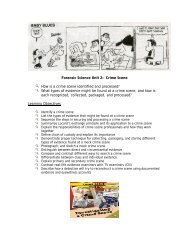
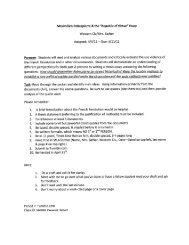

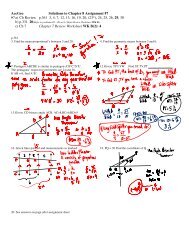
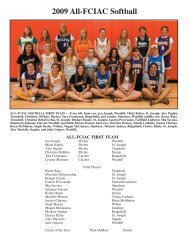
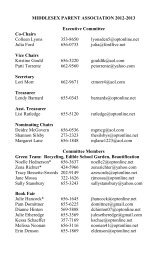
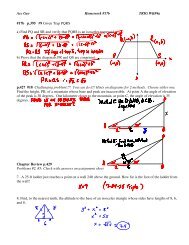
![Name Independent Practice Worksheet 23.]](https://img.yumpu.com/13527672/1/190x245/name-independent-practice-worksheet-23.jpg?quality=85)

